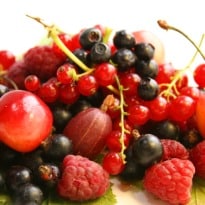Anthocyanins are pigments that impart berries their rich hues and are touted as helpful in preventing cancer. But a new study has raised a question mark over health benefits of some of these colour imparting substances. The benefits are doubtful as two families of such pigments have been found to be more susceptible to degradation in the mouth than are the other four classes of these pigments. Researchers from the Ohio State University, US, have exposed to human saliva some extracts from numerous berries high in these pigments to see just what kind of health-promoting substances are likely to survive and be produced in the mouth.
They are investigating whether it is the berry pigments themselves, or the products of their degradation caused by mouth bugs, that actually promote health, the journal Food Chemistry reports. Scientists say these early findings will contribute to the further development of confectionaries, gums and other delivery devices for the prevention and possibly the treatment of conditions such as gums disease and oral cancers, according to an Ohio statement. The researchers exposed extracts of anthocyanin pigments from blue berries, choke berries, black raspberries, red grapes and strawberries to the saliva collected from a group of people. "All fruits are unique because their chemical composition, or fingerprint, varies," said Mark Failla, professor of human nutrition at Ohio State. "There are many different edible berries. Some might be better for providing health-promoting effects within the oral cavity, whereas others may be more beneficial for colonic health. We simply do not know at this time," added Failla.
Advertisement





